US President Joe Biden “gaffed” again last week saying, very firmly, that the US is committed to defending Taiwan.
This resulted in a round of tut-tutting among the commentariat as officials “walked back” the president’s remarks. The commentariat, always smarter and more informed than any president, was amused at Biden’s “gaffe.”
As if Biden hadn’t been in some elected office in Washington since the late Cretaceous period and wasn’t well-tutored on US Taiwan policy.
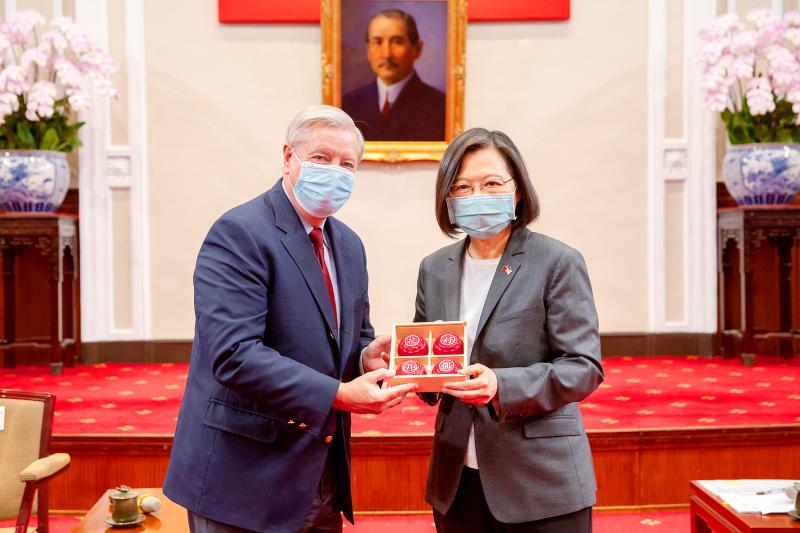
Photo: EPA-EFE
Indeed, as insightful local commentator Courtney Donovan Smith pointed out, he was at a joint news conference with the Japanese prime minister who is a well-known China hawk and the protege of his predecessor, also a China hawk who has called for an end to the US policy of “strategic ambiguity.”
This is now the third time that the president has “misspoken” on this policy, twice in one year saying “we have a commitment to do that.” Each time he said the US would defend Taiwan, officialdom quickly said that US policy is unchanged, followed by the usual incomprehensible word salad of communiques and agreements and policies that would get State Department officials burned for witchcraft in a less forgiving era.
UNCHANGED POLICY
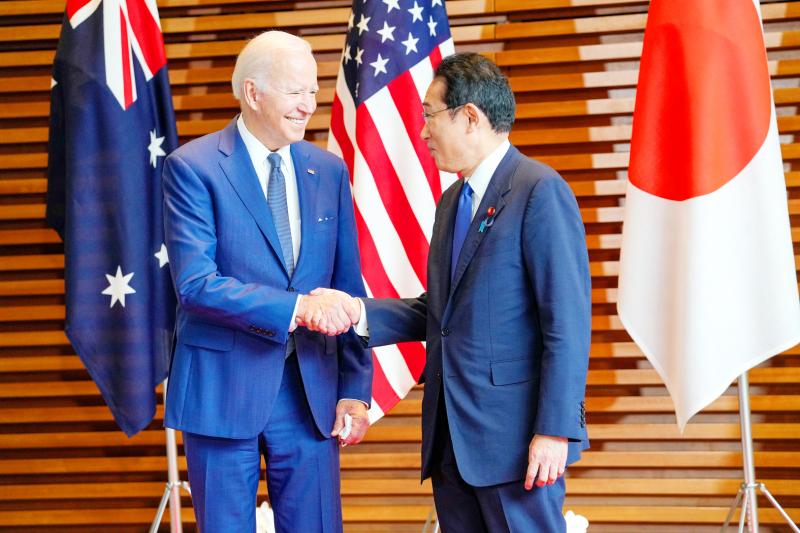
Photo: Bloomberg
That’s because US policy is indeed unchanged. It is, and always has been, to defend Taiwan. That has been the public and more important, private official line that I have been hearing for 20 years now. It was in the 1990s, after all, that former US president Bill Clinton, not exactly a China hawk, positioned two aircraft carriers in the waters south of Taiwan as a pointed reminder to the China when it launched missiles around Taiwan. Clinton’s move came less than 15 years after the US abrogated its mutual defense treaty with the Republic of China (ROC), after all.
Biden’s remarks are not outliers, but instead have a hoary lineage dating back to the late 1950s when US-made Sidewinders make their first kills over the Taiwan Strait, and beyond to the Korean War.
The Chinese know this, which is why they have expended major resources developing weapons and doctrine to counter US-Japan intervention and building ships at a rate the US has no hope of matching. It has also been actively seeking strategic position in the South Pacific, to isolate Australia and gather allies to its side, as the recent trip by China’s Foreign Minister Wang Yi (王毅) highlights.
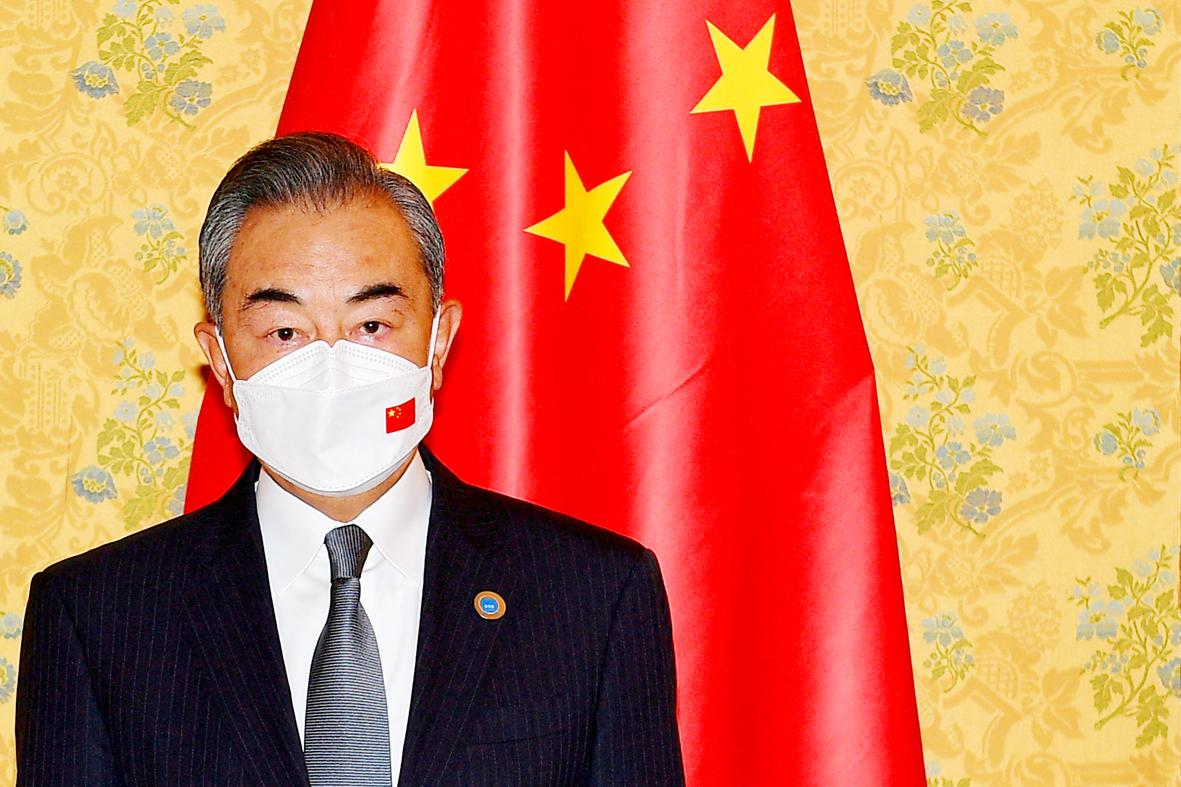
Photo: REUTERS
Under the policy of strategic ambiguity as it is conventionally described, the US has refrained from saying whether it would defend Taiwan and under what conditions it would intervene. This, we have always been told, left the Chinese uncertain as to what the US would do, especially about particular actions, such as seizing offshore islands.
We are assured by the very earnest commentariat that strategic ambiguity has enabled the US to “walk the tightrope of relations with both sides” as a recent CNN explainer put it. This sounds deep and makes US policymakers look deft, but it is absolute nonsense. Strategic ambiguity has “worked” because until recently China never had the power to challenge it in any way. If your enemy is helpless before your might, any policy you adopt will appear successful.
EFFECTIVE DETERRENT?
This uncertainty is a deterrent to Chinese action, commentators say. But the Chinese have never behaved as if it were a deterrent. Instead, they have always behaved as if they need to expand their military to fight off the US. After all, it hardly deterred them from swallowing the South China Sea.
Indeed, uncertainty could well be a problem, as many commentators have pointed out. It invites the Chinese to conclude that the US won’t intervene, tempting them to make war on Taiwan and to pursue a massive military to force the US to back down without a fight. It also suggests that they could test the policy by taking an island or two.
Let’s not forget, it confuses the Taiwanese and makes them pessimistic about whether the US will intervene. Although commentators sometimes present this as stimulating Taiwan to expand its military, the reality is quite the opposite. It makes sense for Taiwan to acquire weapons and training to fight only if Japan and the US will intervene.
By enabling Taiwanese pessimism via strategic ambiguity, the US has offered a gift to the pro-China side in Taiwan, whose constant refrain is that the US will never intervene and Taiwan should sell itself to China at the best price possible. That alone is one good reason the policy should be jettisoned.
Biden’s words will thus reassure Taipei that weapons expenditures are not in vain. The pro-Taiwan side can point to them whenever they are questioned about the US commitment (pro-Taiwan politicians need to be more direct with their own public on this).
They were also welcomed in Japan. As Smith noted: “Biden’s comments in essence gave the Japanese the reassurance [former PM] Abe has been calling for.”
How then could ambiguity deter China? Deterrence only works if both sides are clear on the consequences — that was the whole point of the Mutual Assured Destruction (MAD) policy of the US and the USSR. Biden has just clarified things quite a bit. Certainty, not uncertainty, increases deterrence.
FOR WHO?
Biden clarified things, to be sure, but for who? The Chinese already know that the US will intervene and like any good planners, have gamed a wide range of scenarios for just that outcome. If they haven’t moved yet, it is because of internal debates over costs and outcomes, not because of “strategic ambiguity.” When they finally move on Taiwan, it will be driven by some internal political calculus, not the coy refusal of the US to state what everyone knows Washington will do.
For many years the rhetoric of Chinese officials, from regretful to bloodthirsty, has been aimed, not at Taiwan, but at Chinese domestic audiences. Chinese officialdom has to legitimate its murder and destruction of its own children and economy to its own people, and to dehumanize the Taiwanese to enable its people to accept their extermination.
Similarly, who was strategic ambiguity aimed at? Certainly not at professionals, for whom it functioned largely as a shibboleth whose recitation separated the cognoscenti from the wannabes.
Biden’s remarks make it clear that the target of strategic ambiguity was always the US public. Ambiguity meant that no administration ever had to clearly explain what the US policy was to its own citizens, sparing policymakers much friction. Insiders always knew, though, that the US will fight.
It may be that Biden understands that if the US is going to go to war with China over its desire to annex Taiwan and nearby territories like Okinawa and the Diaoyutai Islands (釣魚台, known as the Senkaku Islands in Japan), the US public will have to be prepared. That means revealing what US policy actually is, baby step by baby step walk-back.
The storm in the Ukraine is a godsend in that regard — not only does it show how incredibly stupid the great authoritarian powers are, it also gives hope that resistance to them is a life-affirming act. While the tendency has been for US and Taiwan officials to downplay Ukraine-Taiwan comparisons, there are certain areas where linking the two might be quite useful.
Notes from Central Taiwan is a column written by long-term resident Michael Turton, who provides incisive commentary informed by three decades of living in and writing about his adoptive country. The views expressed here are his own.

A white horse stark against a black beach. A family pushes a car through floodwaters in Chiayi County. People play on a beach in Pingtung County, as a nuclear power plant looms in the background. These are just some of the powerful images on display as part of Shen Chao-liang’s (沈昭良) Drifting (Overture) exhibition, currently on display at AKI Gallery in Taipei. For the first time in Shen’s decorated career, his photography seeks to speak to broader, multi-layered issues within the fabric of Taiwanese society. The photographs look towards history, national identity, ecological changes and more to create a collection of images
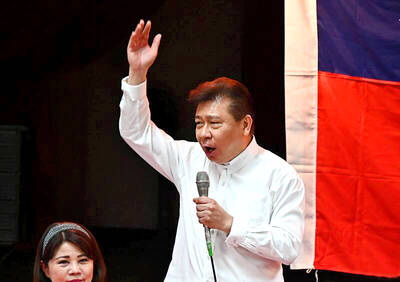
A series of dramatic news items dropped last month that shed light on Chinese Communist Party (CCP) attitudes towards three candidates for last year’s presidential election: Taiwan People’s Party (TPP) founder Ko Wen-je (柯文哲), Terry Gou (郭台銘), founder of Hon Hai Precision Industry Co (鴻海精密), also known as Foxconn Technology Group (富士康科技集團), and New Taipei City Mayor Hou You-yi (侯友宜) of the Chinese Nationalist Party (KMT). It also revealed deep blue support for Ko and Gou from inside the KMT, how they interacted with the CCP and alleged election interference involving NT$100 million (US$3.05 million) or more raised by the

At a funeral in rural Changhua County, musicians wearing pleated mini-skirts and go-go boots march around a coffin to the beat of the 1980s hit I Hate Myself for Loving You. The performance in a rural farming community is a modern mash-up of ancient Chinese funeral rites and folk traditions, with saxophones, rock music and daring outfits. Da Zhong (大眾) women’s group is part of a long tradition of funeral marching bands performing in mostly rural areas of Taiwan for families wanting to give their loved ones an upbeat send-off. The band was composed mainly of men when it started 50
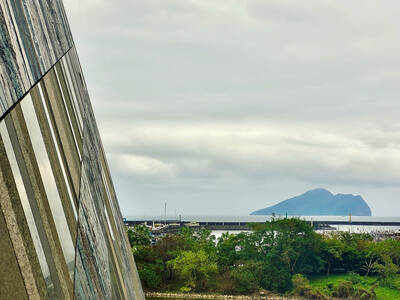
While riding a scooter along the northeast coast in Yilan County a few years ago, I was alarmed to see a building in the distance that appeared to have fallen over, as if toppled by an earthquake. As I got closer, I realized this was intentional. The architects had made this building appear to be jutting out of the Earth, much like a mountain that was forced upward by tectonic activity. This was the Lanyang Museum (蘭陽博物館), which tells the story of Yilan, both its natural environment and cultural heritage. The museum is worth a visit, if only just to get a